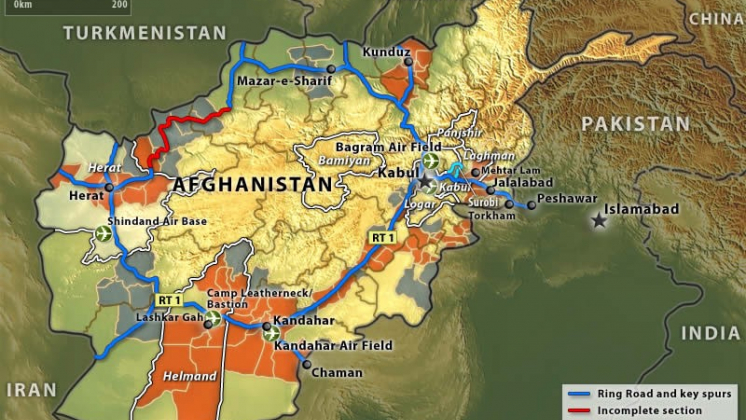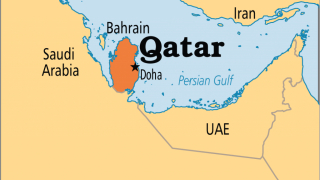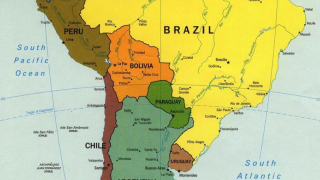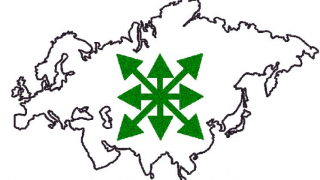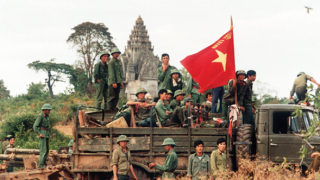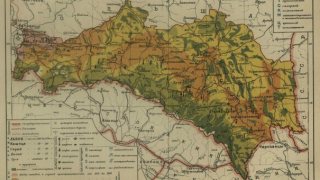Effective measures for Afghan Peace
11.07.2020
Four-decades of instability, war, and destruction of Afghanistan have to end up. The suffering of the people of Afghanistan has crossed all records of human known-history. Pain has already entered into fourth-generation – grandfather, father, son, and grandson are the victims of unrest and war in Afghanistan.
Due to the prevailing situation in Afghanistan, the whole region has been suffering, especially the bordering countries. Pakistan has been the adversely affected country, with the sacrifice of 80,000 precious human lives, hundreds of thousands of injured in conflicts, an estimated economic loss of worth US dollars 250 billion. Menace of terrorism, gun culture, drug culture, intolerance, extremist, etc., are additional gifts for Pakistan.
A stable, peaceful, and prosperous Afghanistan is vital for regional peace, stability, and prosperity. Central Asia, Eastern Asia, and Eurasia can be connected and beneficiary of CPEC, Gwadar Deep Seaport.
Many efforts and initiatives have been taken recently like Mosco Initiative, Doha Dialogue, and Trilateral Dialogue between Afghanistan-China-Pakistan, etc.
On July 7, 2020, the 3rd round China-Afghanistan-Pakistan Trilateral Vice Foreign Ministers’ Strategic Dialogue was held via video link. Chinese Vice Foreign Minister Luo Zhaohui, Afghan Deputy Foreign Minister Mirwais Nab, and Pakistan’s Foreign Secretary Sohail Mahmood co-chaired the dialogue.
The three sides conducted in-depth discussions and reached consensus on cooperation against COVID-19, the Afghan peace and reconciliation process, and trilateral cooperation.
The three sides attach great importance to the China-Afghanistan-Pakistan trilateral cooperation and would continue to vigorously implement the outcome of the 3rd China-Afghanistan-Pakistan Foreign Ministers’ Dialogue. The three sides reaffirmed their commitment to strengthening communication and coordination and enhancing mutual trust and cooperation under the trilateral cooperation mechanism.
The three sides agreed to enhance the cooperation against COVID-19 further, call on the international community to jointly prevent discrimination and stigma, support the World Health Organization’s leading role in coordinating global COVID-19 response, promote international cooperation on joint prevention and control, and safeguard public health security in the region and beyond.
China and Pakistan appreciated the efforts by the Afghanistan government and relevant parties in expediting the exchange of the prisoners to pave the way for the start of the Intra-Afghan Negotiations and call for violence reduction and humanitarian ceasefire. China and Pakistan will enhance cooperation with the Afghan Government in support of the “Afghan-led, Afghan-owned” peace reconciliation process, the launch of Intra-Afghan Negotiations at an early date, the preservation of the gains since 2001, and looked forward to the rapid restoration of peace and stability in Afghanistan.
Afghanistan and Pakistan agreed to strengthen dialogue further and work for continuous improvement of bilateral relations, including through the effective implementation of the Afghanistan-Pakistan Action Plan for Peace and Solidarity (APAPPS). China will continue to play a constructive role in improving Afghanistan-Pakistan relations.
The three sides agreed that the return of Afghan refugees should be part of the peace and reconciliation process. They underlined the role of the international community for a time-bound and well-resourced roadmap for the return of Afghan refugees to their homeland with dignity and honor.
The three sides urged for an orderly, responsible, and condition-based withdraw of the foreign troops from Afghanistan to avoid potential terrorist resurgence. The three parties agreed to continue to strengthen counter-terrorism and security cooperation, combat the “East Turkistan Islamic Movement,” and all other terrorist forces and networks posing threats to our shared security.
The three sides expressed readiness to carry out trilateral practical cooperation in flexible manners and keep exploring new fields of cooperation, to accumulate outcomes for the 4th China-Afghanistan-Pakistan Foreign Ministers’ Dialogue.
Although there exists some internal as well as external resistance, for example, the current Government understands that after peace, they have no role in the future politics of Afghanistan, and they might be playing delaying tactics. Various warring factions may disputes for a more significant share in future political set=up in Afghanistan, etc. Ethnic diversity may also be one factor for resisting peace. The external factors are the US, wanted to save face and honorable exit, while keeping its trust-worthy elements in crucial positions in the future set-up of the Afghan Government, which may not be possible. India and Isreal were exploiting the adverse situation of Afghanistan in their interest for sabotage, terrorism, and coercion of Pakistan so that they may resist peace in Afghanistan.
It is believed, China, Russia, and all its neighbors, are seriously and sincerely working hard for an Afghan-led and Afghan-owned solution and will succeed soon.

